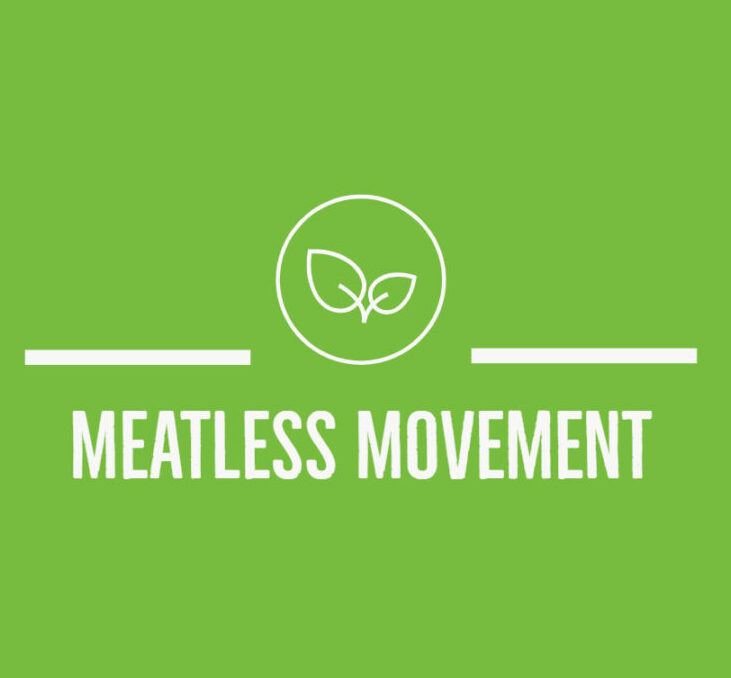Holly Edwards is a visionary creator hailing from the stunning Gold Coast of Australia. With her extensive background in marketing and design, Holly identified a pressing issue within the fashion industry and took matters into her own hands by establishing Lost Woods.
Lost Woods emerged as a response to a significant problem: the absence of a sustainable alternative to leather. Fueled by her love for animals and the deep concern over their exploitation, Holly embarked on a mission to redefine the concept of fashion.
It’s disheartening to witness the immense toll humanity takes on animals, with over 200 million land creatures being slaughtered daily for food alone. This startling number surpasses the casualties of even the deadliest conflicts in history. Despite the global outcry against fur, leather has managed to maintain its allure as a coveted luxury item, largely due to greenwashing practices and the absence of a truly eco-friendly alternative.
But Holly is about to change that narrative.
With a keen focus on ethics and sustainability, Lost Woods is on the verge of unveiling a game-changing solution that will disrupt the fashion industry. Holly’s vision extends beyond simply offering an alternative material; she aims to provide a genuine, high-quality, and eco-friendly substitute that bridges the gap between style and conscience.
By supporting Lost Woods, you become a part of this transformative journey. Together, we can forge a path towards a fashion industry that respects animals, prioritizes sustainability, and empowers conscious consumers. Prepare to embrace a new era of fashion with Lost Woods, where ethics and style converge to redefine the way we dress.
Tell us more about yourself, please
I embarked on a mission to address a significant issue in the fashion industry
Lost Woods | Vegan Handbags
Hi, my name’s Holly Edwards, I’m 29, from the Gold Coast, Australia. I love design, music, dancing, food and travel! I’ve been a vegetarian since I was 14 years old, as I always loved animals and felt disgusted eating them. I went vegan in my mid twenties, after research into the dairy and egg industries revealed that they were just as exploitative and horrible as the meat industry.

I studied design and marketing at university, and worked in marketing agencies afterwards. I currently work in web design for a plus size swimwear label, which is great, but I always wanted to align my career with something I was passionate about.
Human rights, the environment, or ideally, animal rights – since millions of animals face such horrors on a daily basis and most of society is completely apathetic about it.

I always felt frustrated that when buying handbags, shoes, belts, or any leather accessories – the only animal leather alternative on the market was pleather, which is essentially just plastic.
So as my final university assignment I researched eco-friendly alternatives. I discovered cork, a material used in Portugal for centuries, which could be pressed into a fabric. I created a collection of clutches, which I cut on the university laser cutter and hand stitched – I’m no seamstress, so they were very rustic lol.
But over the years the idea stuck in my mind, and I played with prototypes of handbags made from various materials, including cactus and grape leather – but I always wanted something that was 100% plastic free. I recently found it!
Are you looking for an alternative to leather and plastic?
Lost Woods | Vegan Handbags
I recently launched my business Lost Woods – a luxury handbag label, handmade in a small female run workshop in Portugal from a world-first plastic-free vegan leather.
Regular faux leather has been rebranded as ‘vegan leather’ in recent years. This is technically correct – it’s not made from animals – but brands have been using the eco connotations associated with veganism to greenwash a plastic based product.

Pleather is made from PVC or polyurethane – plastic derived from petroleum fossil fuels. Although faux leather lacks the animal abuse component, production of pleather involves significant water, energy and chemicals. There have been some developments of polyurethane made from vegetable oil instead of petrol, but ultimately, PU is still plastic and will never break down.
A range of ‘plant-based’ faux leathers have hit the market in recent years. Yes, they contain a percentage of plant waste products and are a better option than regular pleather, but unfortunately, they still rely on a percentage of plastic to achieve their durability.
MIRUM® is up to 10 times less greenhouse gas emitting than conventional animal or plastic leather. It is made from:
Lost Woods | Vegan Handbags
47% natural tree rubber
26% natural fibres and fillers
27% plant oils and waxes
Backed with natural cotton
Until now! Our luxury vegan bags are MADE WITH MIRUM®, the first vegan leather alternative on the market that is 100% plastic free. It’s made at a wind-energy powered factory in the USA, from natural tree rubber, minerals, plant fibres, oils and waxes. The production of MIRUM® is up to 10x less greenhouse gas emitting than conventional animal or plastic leather.
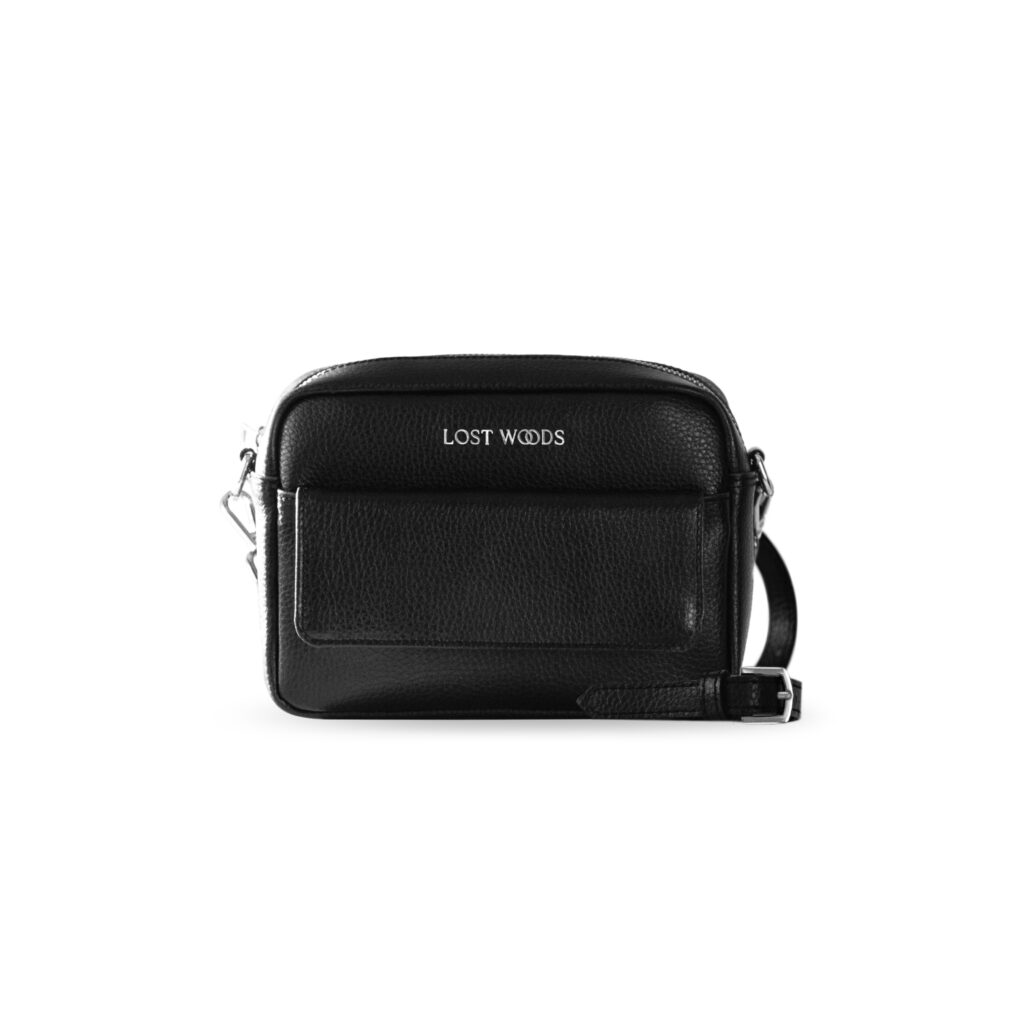
MIRUM® is beautiful, tough and water resistant
Lost Woods | Vegan Handbags
Lost Woods offers a range of premium handbags, backpacks and wallets, made in Europe. I wanted to launch a collection that was sustainable, but also high-end. There have always been plenty of eco products on the market that look eco – just head down to your local farmer’s market – but there aren’t many environmentally-friendly vegan brands that can go head to head with established designer labels. If we want veganism to become the norm, we need to tempt ‘regular’ people over to our products based on their desirability alone.
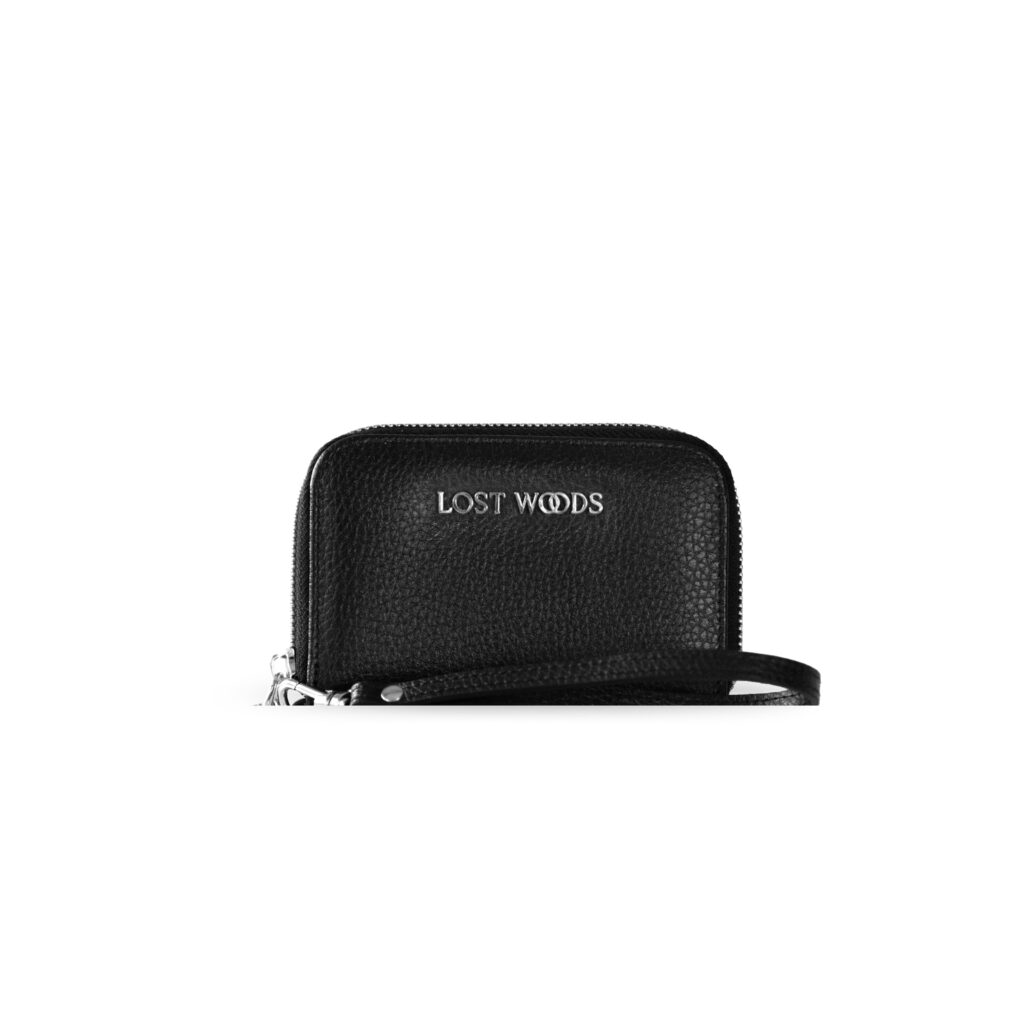
Cattle ranching for beef and leather is the biggest driver of deforestation in the world – our brand name pays homage to all of the forests and wildlife lost to leather
Lost Woods | Vegan Handbags
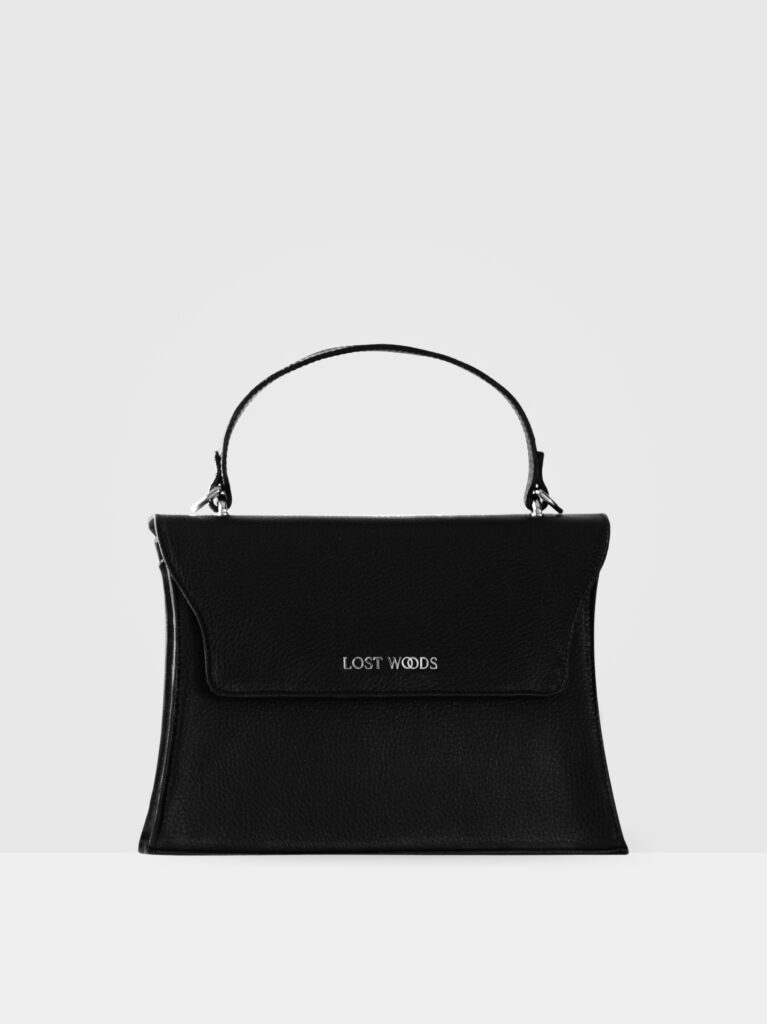
Because animals are sentient beings with a life experience that should be respected. It’s devastating that humans have taken one of the greatest joys of our planet, animals, and turned them into products.
It’s mind boggling that humans kill more than 200 million land animals for food per day. World War II, the deadliest conflict in human history, killed 60 to 85 million people – less animals than we kill in a day. That’s not counting sea creatures, animals killed indirectly by habitat destruction, or animals killed specifically for other industries – like fashion.
Interestingly, while similar materials like fur have been globally condemned, leather has maintained its image as a coveted luxury product. Apart from greenwashing by the leather industry – I blame the lack of a high quality, eco-friendly alternative. I set out to change that.
Could you please showcase three of your exceptional vegan handbag products?
MIRUM® is the leather alternative the world has been waiting for
Lost Woods | Vegan Handbags
The first would be our Briar Baguette Bag. I designed this style to be super versatile, because I think the more looks you can get out of a fashion product, the more you will wear it, and the longer it will last you over the years!
It’s a classic small and simple shape, a bit of a 90s revival, and it comes with a traditional baguette short leather strap that you can hold as a top handle or wear over your shoulder. But, it also comes with a thick, webbed logo strap – or a guitar strap as some call it. This adds the option to wear the bag as a crossbody, with a luxe sportswear look. It also has an edgy decorative box chain. The chain comes off if you’re feeling more minimal – or you can wear the bag with the chain alone as an evening clutch.
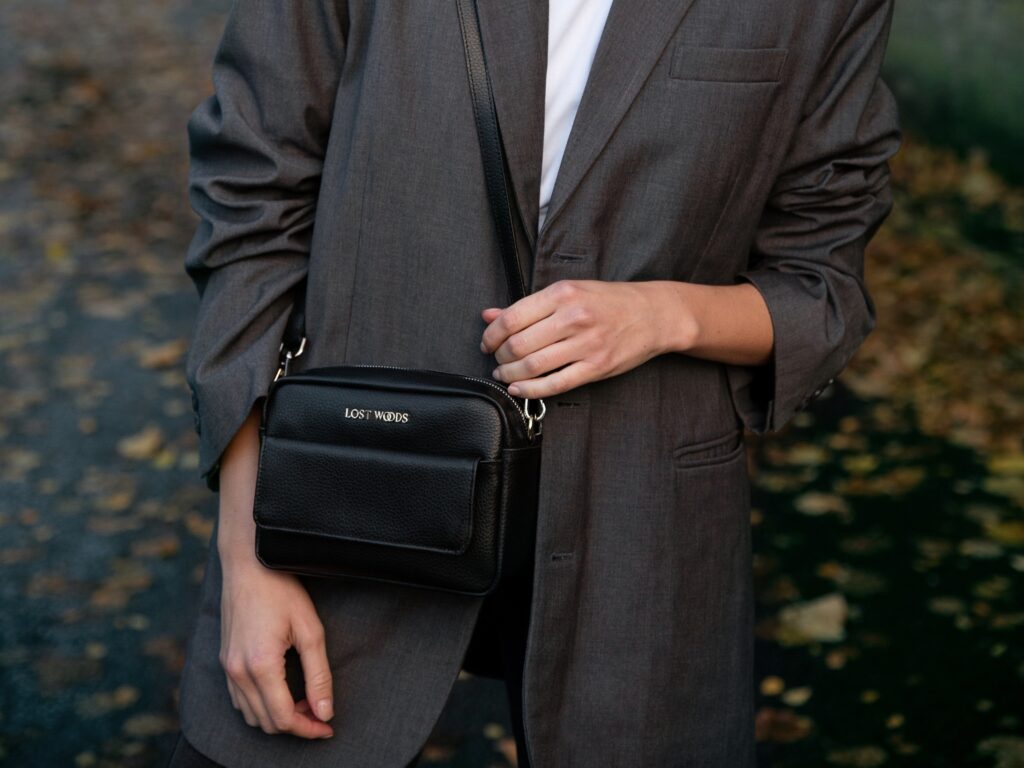
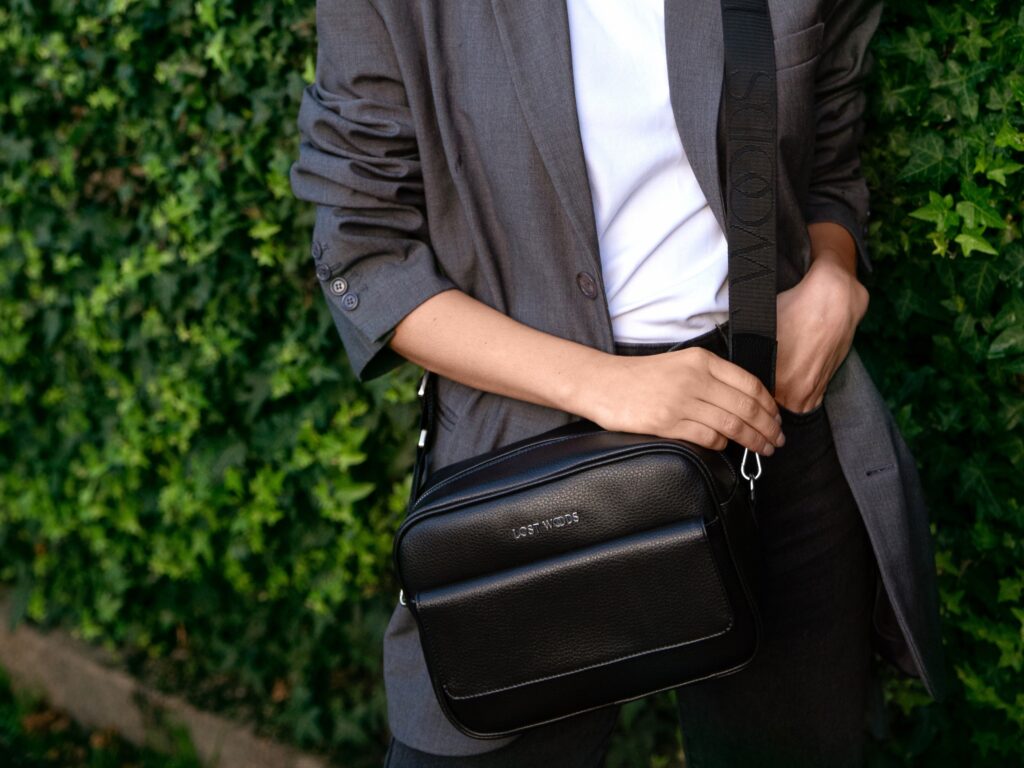
Next would be the Willow – a structured box-shaped bag with a magnetic lid closure. This style has an elegant, minimal box chain strap without clips, that is looped through arches on top of the bag. You can wear this style with the chain doubled up on your shoulder, on your arm or in your hand – or pull the strap all the way through and wear it long as a crossbody! This style has a beautiful strong shape, and looks just as lovely on as it does sitting on a cafe table.

The third is Birch – a uniquely structured backpack with curved sides and a magnetic lid closure. Birch is great for day trips, study or the office. It’s not a heavy duty backpack – more of an elevated style with thin straps that won’t distract from your outfit – but it will fit a slimline laptop. This backpack is dressy and elegant, but it also has lots of pockets, including a zip pocket for valuables that is hidden against your back when you’re wearing it.
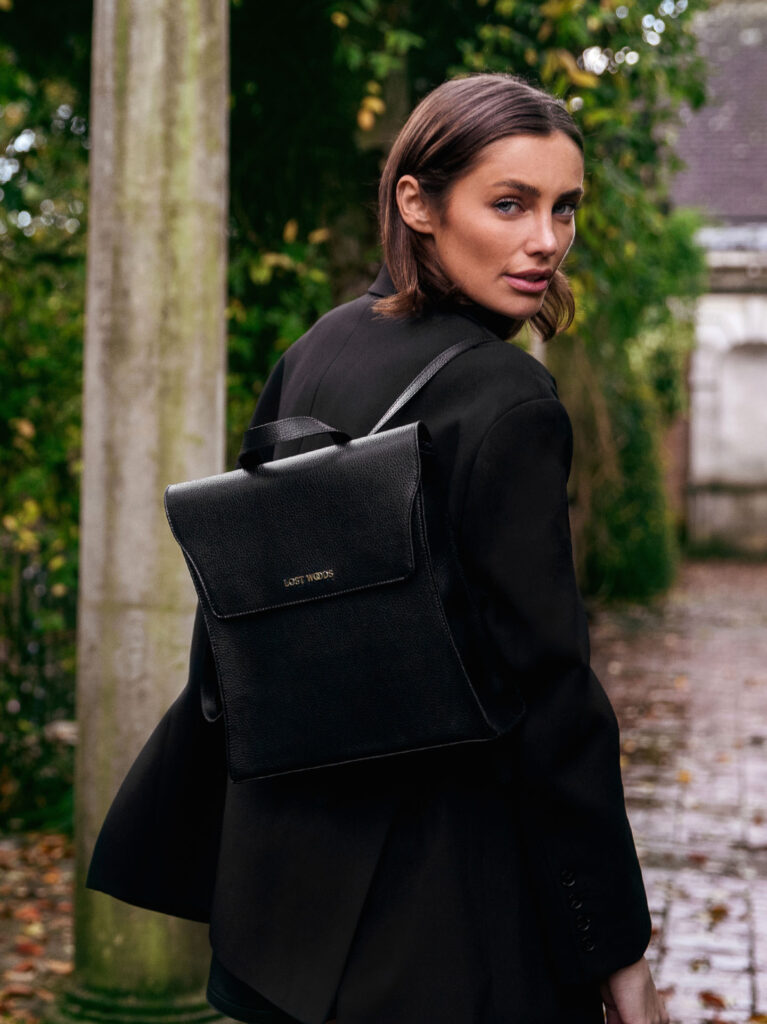
I know there are so many people out there that have been waiting on a sustainable alternative to leather, so I can’t wait to engage with my first customers
Lost Woods | Vegan Handbags
All of our bags come with gold and silver hardware so you can match your bag with your jewellery! We only offer black at the moment – as it was all that was available in MIRUM® when we started prototyping.
But we are looking at introducing more colours, like a tan, an olive green and a baby blue soon.
Interesting brand stories (e.g. any special reason for the name of business, history, etc)
Not only is leather an animal welfare tragedy, it’s terrible for the environment. Leather tanneries use harmful chemicals that cause air and water pollution, and cattle grazing for beef and leather is a significant cause of deforestation – particularly in tropical regions like the Amazon rainforest.
Based on ChatGPT’s best estimate, about 3,000 football fields of forest are cleared daily for beef and leather production. Massive demand for cattle products has led to the large-scale conversion of forests into pastureland and cropland for growing cattle feed – such as soy. This process contributes to the loss of critical habitats for many species, increased greenhouse gas emissions, and the disruption of local and global climate patterns.
After years of searching for the right supplier and having prototypes made around the world, we decided on a small female-run workshop of 20 makers near Porto
Lost Woods | Vegan Handbags
Our brand name Lost Woods pays homage to all of the forests and wildlife lost to leather.
My factory in Portugal. They are a traditional Portuguese leather making workshop of only about 20 artisans, and have worked with animal leather all of their lives – but they were so supportive of my concept. A lot of leather experts that I approached about producing with vegan materials wouldn’t hear of it. One even rudely schooled me that “VEGAN LEATHER is not a thing, IT’S NOT LEATHER”.
By contrast, my workshop has worked with me through this whole project. They allowed me to produce a variety of styles in small numbers – so that I have a great range to launch, even with a small budget. They patiently worked with me as I changed every material in production. They had to work with this new vegan leather, I changed the lining to organic cotton, I changed the hardware. Did you know that inside a structured handbag there is a third layer to create the shape? This is often leatherboard or plastic. We searched for months for an animal-free, plastic free structural material – settling on a plant-cellulose board from a footwear supplies company in Italy.
They even found a vegan cafe near their industrial area near Porto to take me for lunch when I visited – and everyone had the vegan curry. I know as vegans, we can often demonise people such as leather makers – but ultimately they are just people using skills for a job, and it’s awesome to show them that they can transition their amazing skills to this next generation industry and be a part of the change.
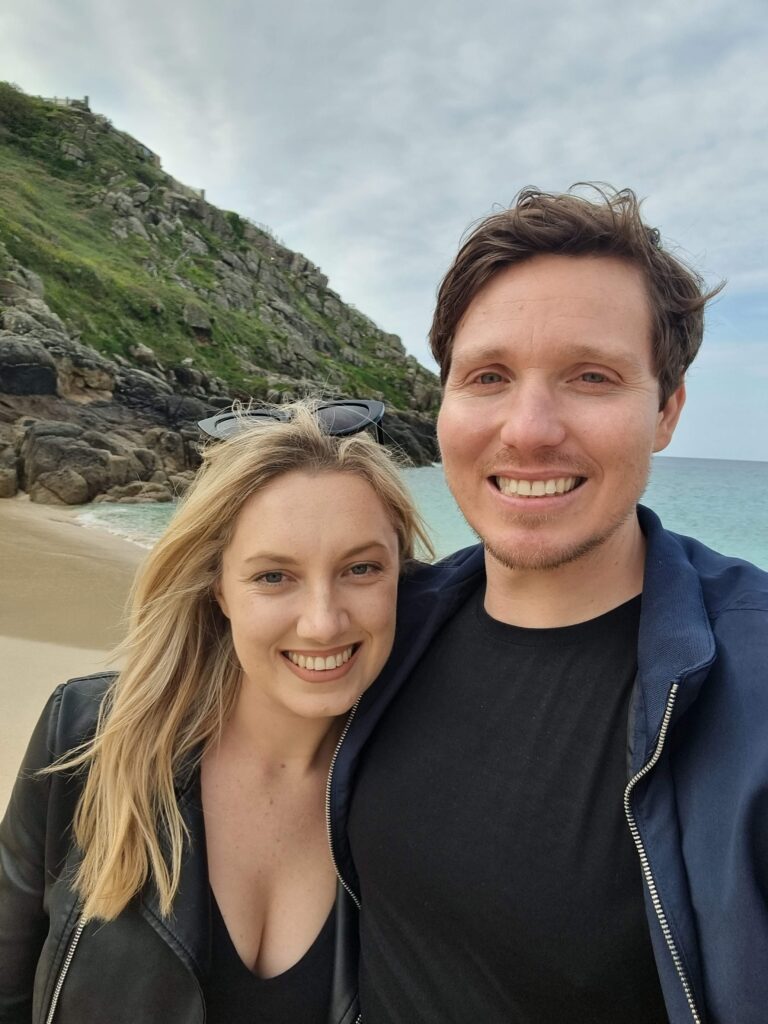
I also would like to thank my partner – for supporting me all the way, both in spirit and in committing a large chunk of our savings to my business! He’s been my champion, believing in me and cheering me on over the years through the highs and lows of trying to get a new business off the ground.
From your perspective, what are the reasons behind the growing popularity of meat-free diets?
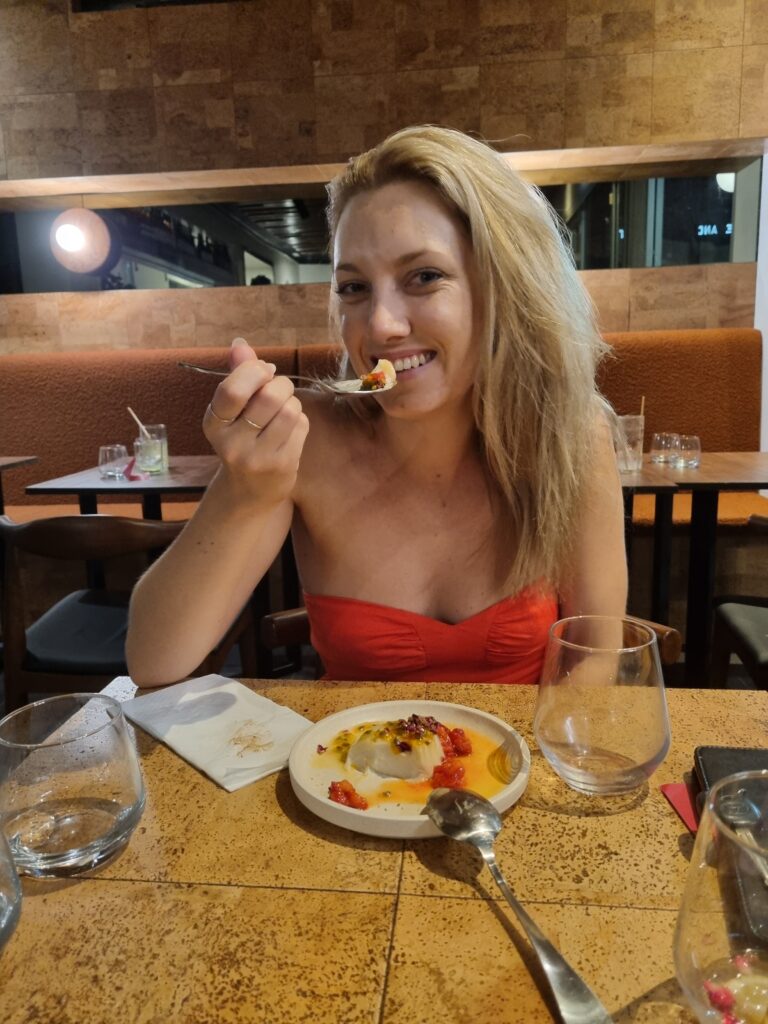
It’s so amazing that meatless diets are on the rise. I think there is growing awareness that eating meat is a big contributor to climate change. Some people do it for their health, as there is growing awareness that processed meat is a carcinogen that increases your risk of many diseases.
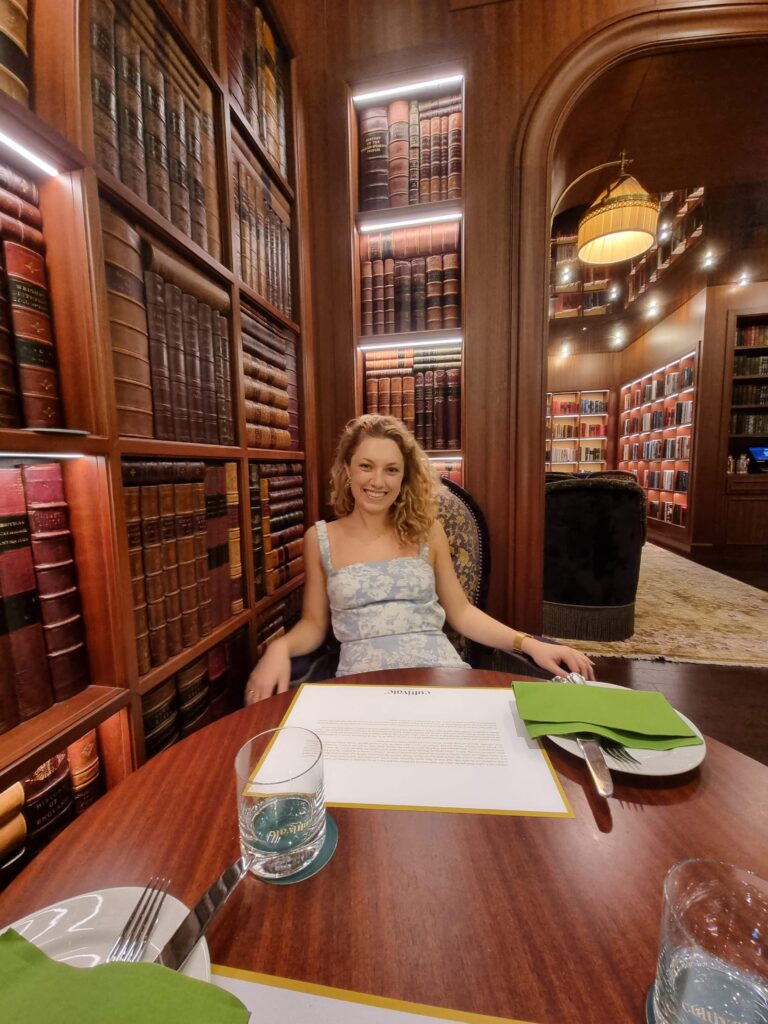
I hope that, with the increasing transparency that is brought to the meat industry by activists, that people are also starting to develop empathy for the atrocities that animals are subjected to. I know a lot of people that are willingly ignorant to where the meat on their plate comes from, and get defensive when they are told.
But slowly, over time, people are opening their eyes and realising that farm animals are no different to the pets that they love so dearly.
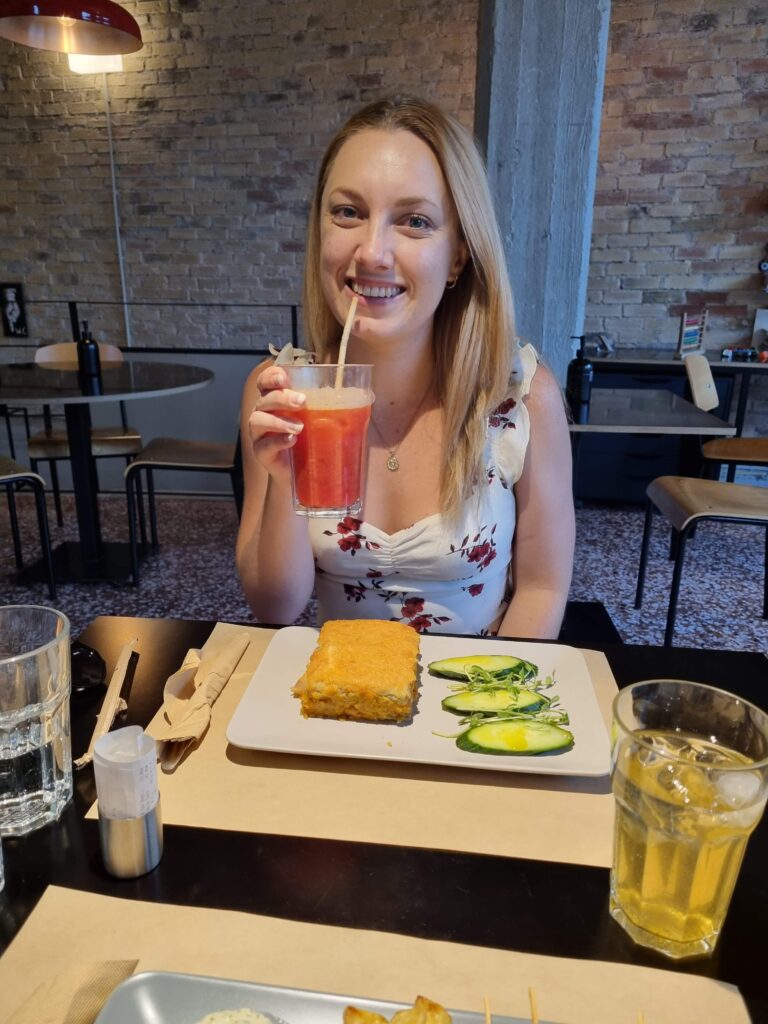
What are some common misunderstandings regarding vegan lifestyles?
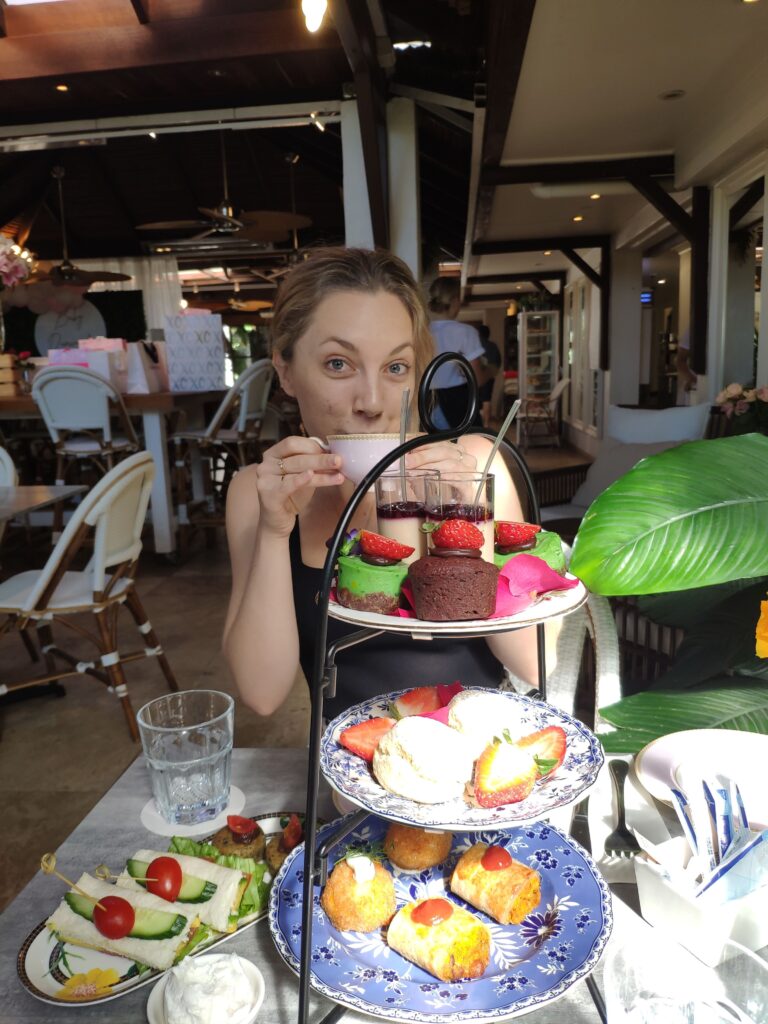
That being vegan is limiting and boring. People think I live a life of great sacrifice, but I love my life and get so much pleasure from food. I’m a real foodie, and don’t spend one day of my life feeling that I’m missing out. Once you watch animals being murdered for food, and you really see them, you no longer see meat as food – you see it as an unappealing corpse. In contrast, plant-based food is vibrant and delicious.
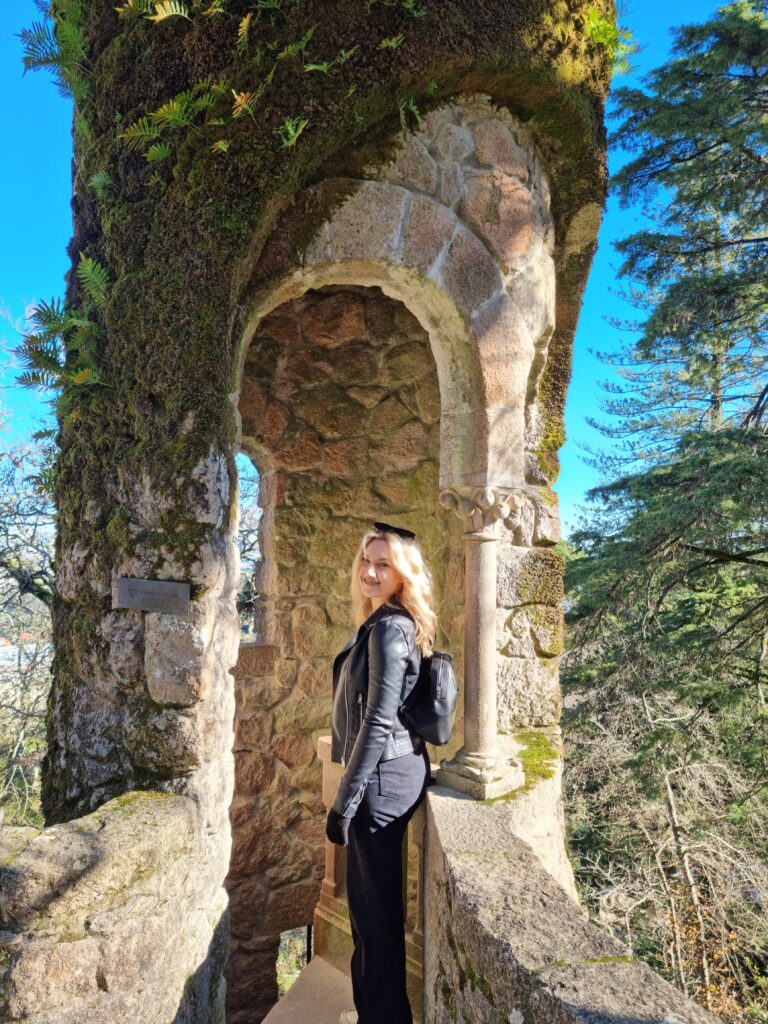
When I first stopped eating meat as a teen, the options were limited to wholefoods. Wholefoods are delicious and still the cornerstone of my diet, but nowadays there are also so many options for eating out and indulging in junk food.
I went to a vegan cheese shop in London yesterday and ate my weight in cheddar, blue and smoked cheeses – all made from nuts and plant oils – it was delicious! Similarly there are pizzas, pies, tacos, chocolates, wine, cocktails – all the fun things you used to eat, you can still eat as a vegan. You don’t instantly have to live off kale and quinoa salads.
I try to educate people gently about it – mostly by sharing food! I love to bring vegan treats into the office and to invite friends over for vegan dinner parties. If people can realise that eating vegan is a pleasure, not a pain, then it’s much easier for them to change their habits and open their eyes to the plight of animals.
Join us on this transformative journey as we pave the way for a fashion industry that respects animals, prioritizes sustainability, and empowers conscious consumers.
Lost Woods | Vegan Handbags
Thank you for the interview and the interest!
I think the vegan community is so wonderful – everyone supports each other and cheers each other on, and that’s a really unique thing. As a small business it’s really heartwarming to be embraced by vegans around the world and to feel the collective excitement at pushing the movement forward for the animals.
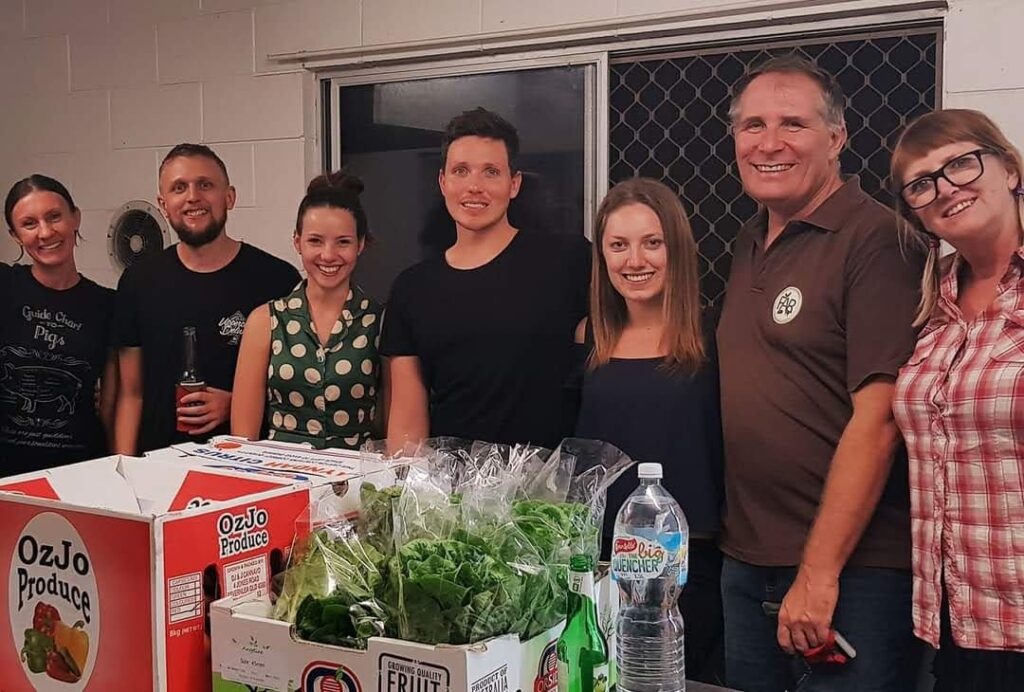
Lost Woods | Vegan Handbags
Accessories
Luxury Australian handbags
100% plastic free vegan leather
Produced in Portugal
Made with MIRUM®
For the animals and forests lost to leather
all images courtesy of Lost Woods | Vegan Handbags
